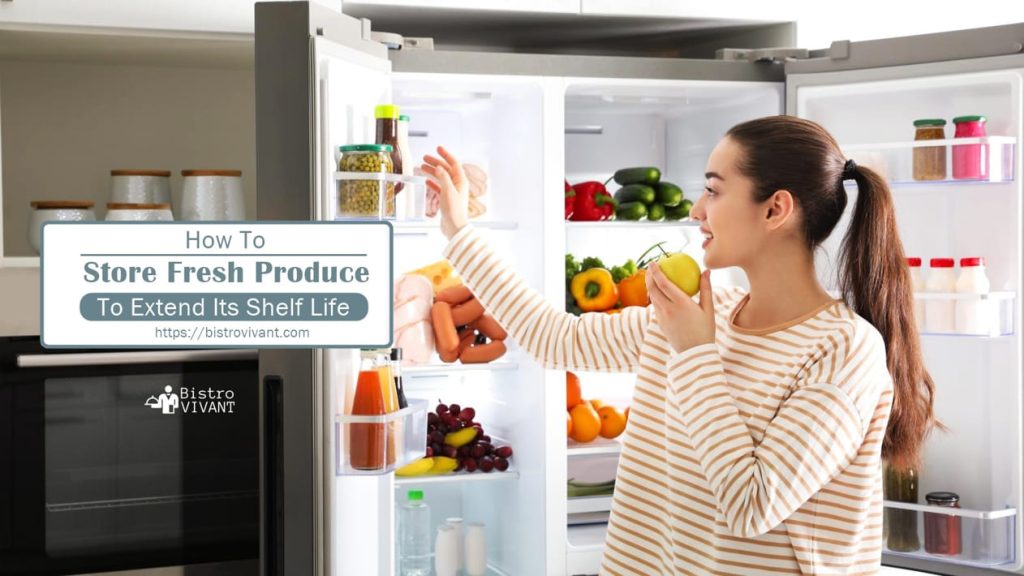Fresh produce can quickly spoil if not stored properly. By following some simple tips, you can significantly extend the shelf life of your fruits and vegetables. From apples to zucchinis, knowing the correct storage methods can help you enjoy your produce for longer periods, minimizing waste and maximizing freshness. Read on to learn how to store your fresh produce effectively and keep it at its best for as long as possible.
Key Takeaways:
- Proper Storage: Store produce in the right environment with the correct temperature and humidity levels to extend its shelf life.
- Avoid mixing: Keep fruits and vegetables separate to prevent them from ripening or spoiling prematurely.
- Use Storage Tools: Utilize storage tools like crisper drawers, paper towels, and ethylene absorbers to help maintain freshness and prolong the life of produce.
Understanding Factors Affecting Shelf Life
Temperature and Humidity
For fresh produce, the right combination of temperature and humidity is crucial to prolonging its shelf life. Here is a breakdown of how these factors affect your production:
| Factor | Effect |
| Temperature | Controls the rate of respiration and ripening |
| Humidity | Prevents wilting and dehydration |
Assume that maintaining the optimal temperature and humidity for each type of produce can significantly extend its shelf life.
Ethylene Production and Ripening
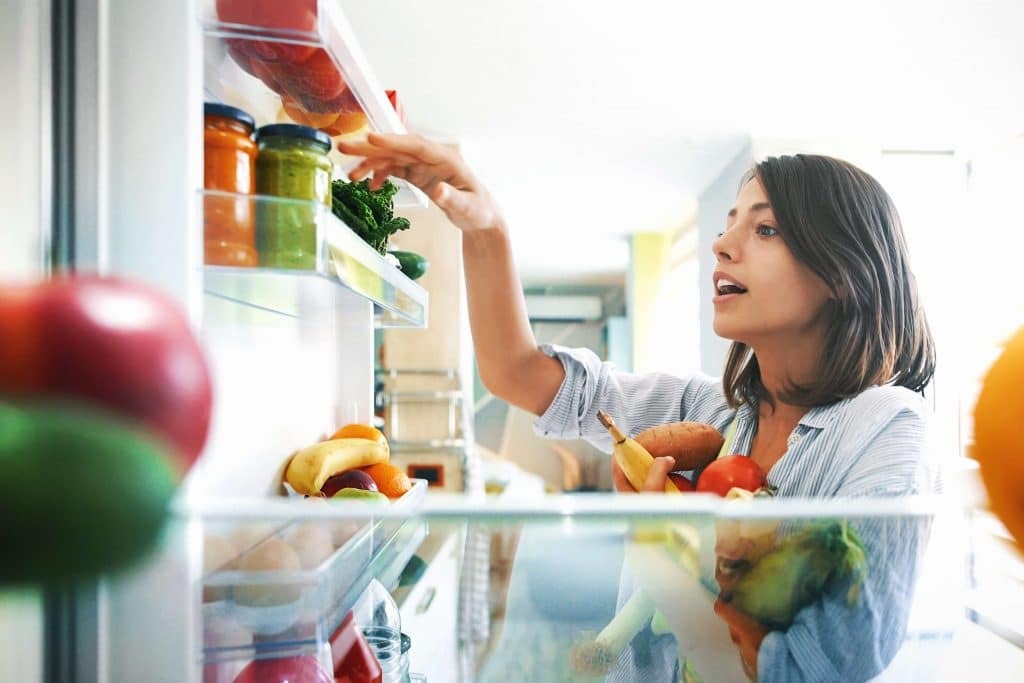
The production of ethylene, a natural plant hormone, can accelerate the ripening process of fruits and vegetables. When storing produce, consider the following:
Plus, ethylene-producing items should be stored separately from those sensitive to it to prevent premature ripening.
Handling and Storage Practices
Any mishandling or improper storage practices can drastically reduce the shelf life of your produce. Here are some key points to remember:
Understanding the impact of temperature, humidity, ethylene, and proper handling on your fresh produce can help you maximize its shelf life and reduce food waste in your home.
Tips for Storing Fresh Fruits
There’s nothing better than biting into a juicy piece of fresh fruit. To make sure your fruits stay fresh for longer, here are some tips to help you store them properly:
- Berries and Grapes: High Humidity and Cool Temperatures
- Citrus Fruits: Room Temperature and Low Humidity
- Apples and Pears: Cool Temperatures and Ventilation
Berries and Grapes: High Humidity and Cool Temperatures
Clearly, different fruits require different storage conditions. Berries and grapes thrive in environments with high humidity and cool temperatures. To prolong the shelf life of these delicate fruits, store them in the refrigerator inside perforated plastic bags to maintain the right moisture levels.
| Storage Tip | Best Fruits |
| High Humidity | Berries, Grapes |
| Cool Temperatures | Berries, Grapes |
Citrus Fruits: Room Temperature and Low Humidity
The citrus fruits category includes oranges, lemons, and limes, among others. The best way to store these fruits is at room temperature with low humidity. Placing citrus fruits in a fruit bowl on the counter is ideal for maintaining their freshness and flavor.
| Storage Tip | Best Fruits |
| Room Temperature | Citrus Fruits |
| Low Humidity | Citrus Fruits |
The key to keeping citrus fruits fresh is to ensure they have proper airflow to prevent mold growth. By storing them at room temperature, you can enjoy their juicy goodness for a longer period of time.
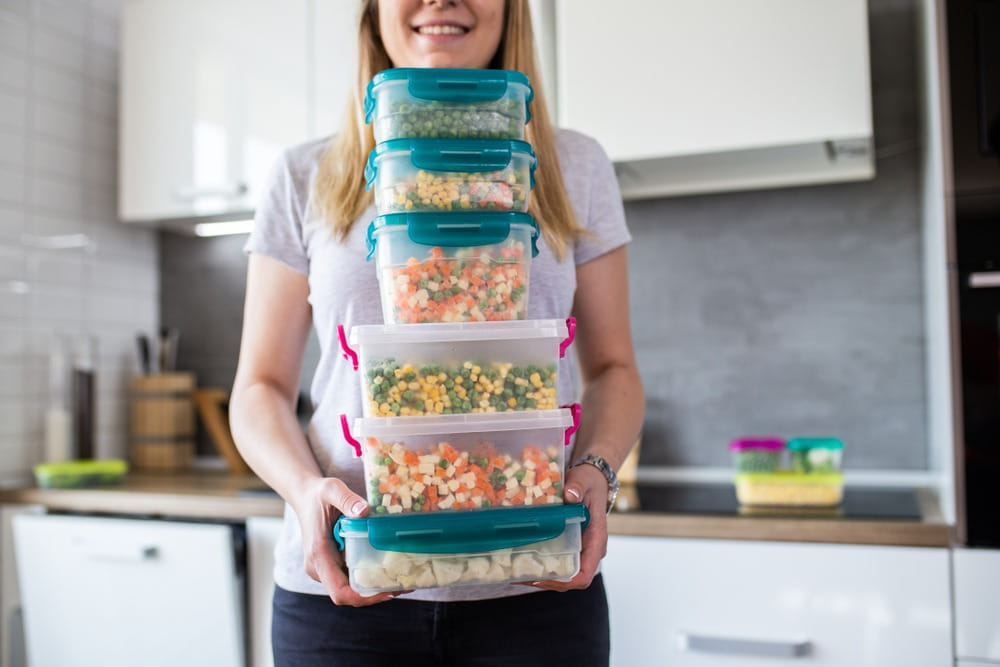
Apples and Pears: Cool Temperatures and Ventilation
For apples and pears, it’s crucial to store them in an environment with cool temperatures and adequate ventilation. These fruits do well when kept in the refrigerator crisper drawer or in a fruit bowl on the counter, away from direct sunlight.
| Storage Tip | Best Fruits |
| Cool Temperatures | Apples, Pears |
| Ventilation | Apples, Pears |
For longer-lasting apples and pears, make sure to separate any bruised or damaged fruits to prevent the spread of spoilage. This simple step can help preserve the quality of your fruit stash.
Additionally, if you’re looking for more in-depth tips on how to prolong the shelf life of your fruits and vegetables, check out How do I prolong the shelf life of my fruits and vegetables on Reddit.
How to Store Fresh Produce Leafy Greens and Herbs
Despite being delicate, leafy greens and herbs can last longer if stored properly. Here are a few tips to help you extend the shelf life of these fresh produce items.
Washing and Drying Before Storage
Washing your leafy greens and herbs before storing them is crucial to remove any dirt or residue. Make sure to dry them thoroughly using a salad spinner or paper towels to prevent excess moisture, which can lead to spoilage.
Storing in Sealed Containers or Bags
Sealed containers or bags can help preserve the freshness of your leafy greens and herbs by creating a controlled environment with minimal airflow. This can prevent wilting and keep your produce crisp for longer periods of time.
Plus, storing your leafy greens and herbs in sealed containers can also help prevent them from absorbing odors from other foods in the fridge, ensuring they maintain their natural flavors.
Keeping Them Cool and Dry
Containers with ventilation, like perforated bags or produce storage containers with air vents, can help regulate the moisture levels around your leafy greens and herbs, keeping them fresh for a longer time.
Storage in the crisper drawer of your refrigerator is also a good option for leafy greens and herbs. The cool and slightly humid environment of the crisper can help maintain the crispness of the produce.
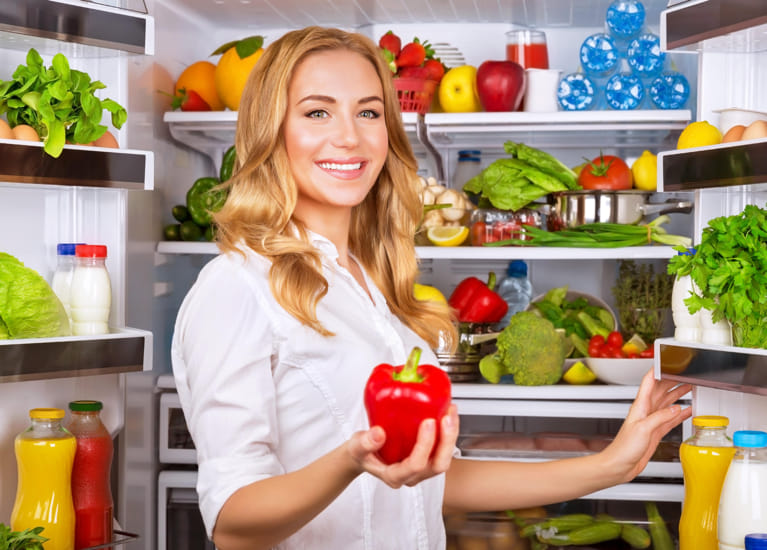
The Art of Storing Root Vegetables
Many “9 methods to extend the shelf life of fresh produce” focus on proper storage techniques for root vegetables like carrots, beets, potatoes, onions, and garlic. Let’s look into some tips to help you prolong the freshness of these versatile veggies!
Cool and Dark Storage for Carrots and Beets
Vegetables like carrots and beets thrive in cool, dark environments. Store them in a cool and dark place, away from direct sunlight, ideally in your refrigerator. To extend the shelf life even further, you can store them in a perforated plastic bag to maintain the right level of moisture without causing them to become soggy.
Ventilated Storage for Potatoes
Potatoes also benefit from proper ventilation to prevent them from sprouting or developing soft spots. Find a cool, dark, and well-ventilated spot to store your potatoes. Avoid storing them near onions, as the gases they release can cause potatoes to spoil more quickly.
If you don’t have a root cellar, you can place potatoes in a paper bag with plenty of holes poked in it to promote air circulation. It’s important to keep them in a dry environment to prevent them from sprouting or rotting prematurely.
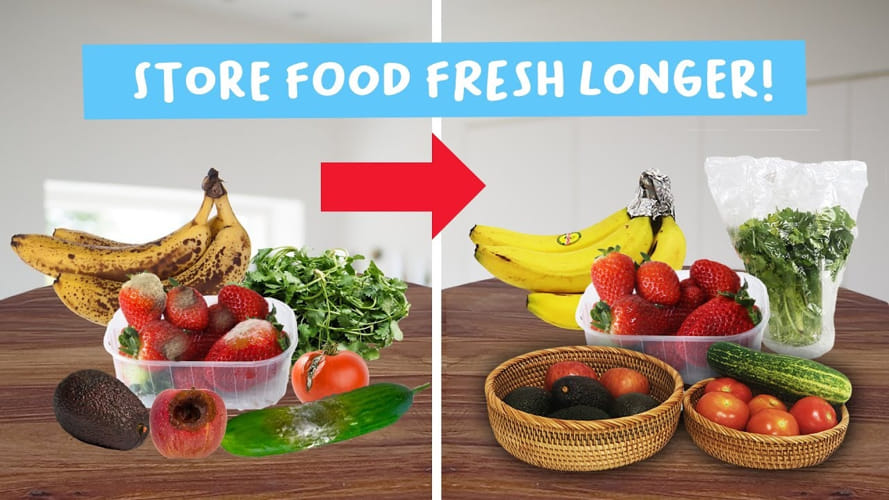
Storing Onions and Garlic in a Dry Place
Storage is crucial when it comes to onions and garlic. These alliums should be stored in a dry place with good air circulation to prevent them from becoming moldy or soft. Your kitchen pantry or a mesh bag hung in a well-ventilated area are both excellent options to keep them fresh.
Make sure to keep onions and garlic away from moisture and sunlight, as exposure to these elements can shorten their shelf life. You can place them in a cool, dark place with good airflow, such as a wire basket, to ensure they stay fresh for longer.
How to Keep Cruciferous Vegetables Fresh
Storing Broccoli and Cauliflower in a Humid Environment
Keep your broccoli and cauliflower fresh by storing them in a humid environment. These vegetables thrive in moisture, so place them in perforated plastic bags in the crisper drawer of your refrigerator. The holes in the bags allow for proper airflow while maintaining the necessary humidity levels.
Keeping Kale and Spinach Fresh with Proper Washing
An important step in keeping your lettuce and spinach fresh is to wash them properly. Start by filling a bowl with cold water and submerging the greens to loosen any dirt or debris. Rinse them thoroughly under running water and pat them dry with paper towels before storing in a breathable container lined with a dry paper towel in the fridge.
Another tip to extend the shelf life of your cabbage and spinach is to remove any damaged leaves before washing. By discarding any wilted or yellow leaves, you can prevent the spread of moisture and keep the rest of the bunch fresh for longer.
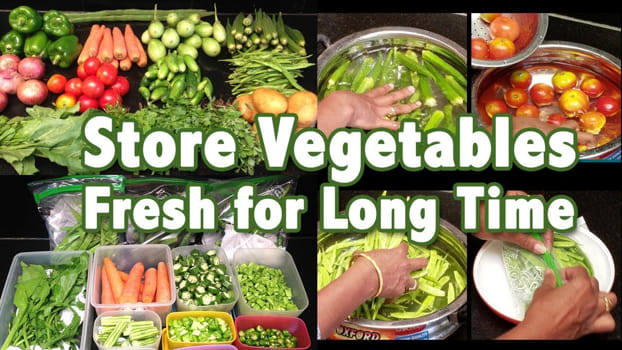
Storing Cabbage and Bok Choy in a Cool Place
Cabbage and bok choy can stay fresh for a longer time if you store them in a cool place. These vegetables should be kept in the crisper drawer of your refrigerator, wrapped in a damp paper towel, to maintain the right level of moisture. Make sure to keep them away from fruits like apples, pears, and bananas, as these emit ethylene gas that can speed up the ripening process.
Cabbage and bok choy are best stored whole and unwashed until you are ready to use them. This helps preserve their freshness and crunchiness until you’re ready to enjoy them in your favorite dishes.
Factors to Consider for Storing Tropical Fruits
All tropical fruits require specific conditions for optimal storage to extend their shelf life. Here are some factors to consider when storing tropical fruits:
- High Humidity and Warm Temperatures for Bananas
- Storing Mangoes and Pineapples at Room Temperature
- Refrigerating Papayas and Kiwis
High Humidity and Warm Temperatures for Bananas
| Consider | Details |
| Humidity | High humidity is key for bananas, as it helps prevent them from drying out. |
| Temperature | Keep bananas at warm temperatures above 60°F for optimal ripening. Avoid storing them in the fridge. |
Storing Mangoes and Pineapples at Room Temperature
| An | Details |
| Mangoes | Keep mangoes at room temperature until ripe, then refrigerate to slow down ripening process. |
| Pineapples | Store pineapples at room temperature until ripe, then refrigerate for longer shelf life. |
You can find more detailed information on how to properly store tropical fruits and other fresh produce in the blog post How To Extend the Shelf Life of Fresh Produce.
Refrigerating Papayas and Kiwis
Little refrigeration is needed for papayas and kiwis to prolong their freshness. Place them in the refrigerator once they are ripe to keep them fresh for a longer period of time.
Room temperature can affect the ripening process of tropical fruits, so always consider the specific storage requirements for each fruit to maximize their shelf life.
Conclusion
Following this guide on how to store fresh produce to extend its shelf life can help you reduce food waste and save money. By properly storing fruits and vegetables in the right conditions, you can enjoy them for longer periods, ensuring they stay fresh and flavorful when you are ready to eat them.
Remember to always check for any specific storage instructions for different types of produce and make sure to rotate your items to use the oldest ones first. With these simple tips and tricks, you can make the most out of your groceries and have delicious, nutritious produce on hand whenever you need it.
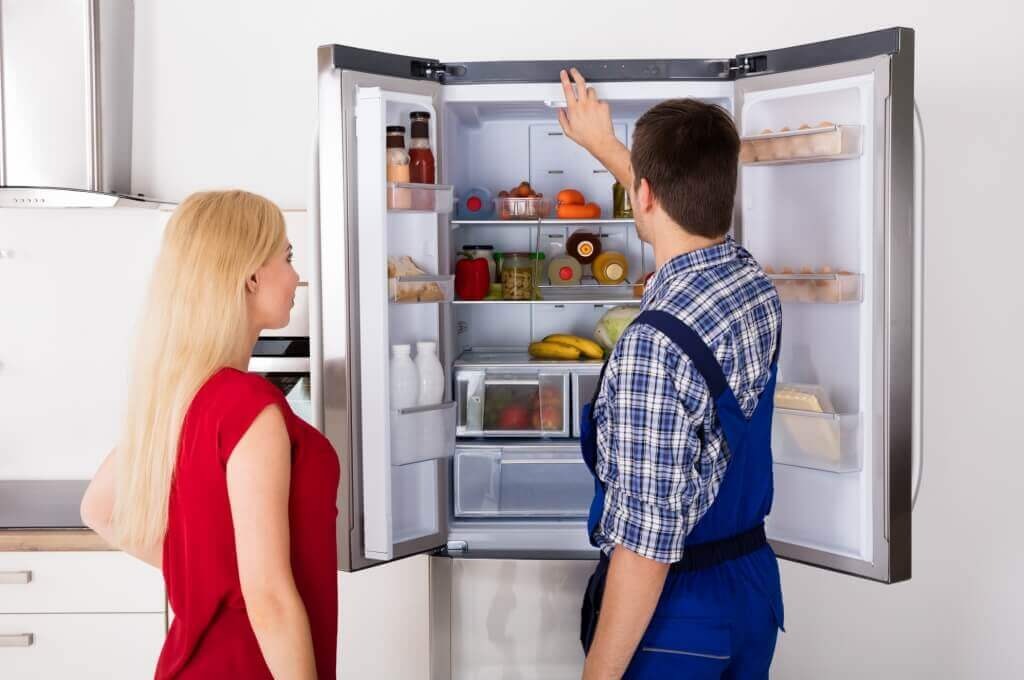
FAQ
Q1: Why is it important to store fresh produce properly?
Ans: Proper storage of fresh produce helps to extend its shelf life, maintain its nutritional value, and prevent it from spoiling quickly.
Q2: What are some general tips for storing fresh produce?
Ans: Store fresh produce in a cool, dark place with good air circulation. Keep fruits and vegetables separate, and avoid storing them near sources of heat or ethylene-producing foods.
Q3: How should leafy greens and herbs be stored to keep them fresh?
Ans: To keep leafy greens and herbs fresh, wash and dry them thoroughly, then wrap them in a paper towel before storing them in a resealable bag or container in the refrigerator.
Q4: What is the best way to store berries to prevent them from molding quickly?
Ans: To prevent berries from molding quickly, store them unwashed in a single layer on a paper towel-lined tray in the refrigerator. Wash them just before eating.
Q5: How can I store root vegetables to keep them fresh for a longer period of time?
Ans: Store root vegetables such as carrots, potatoes, and beets in a cool, dark place with good ventilation. Remove any green tops before storing to prevent them from sprouting.
 https://bistrovivant.com is a participant in the Amazon Services LLC Associates Program, an affiliate advertising program designed to provide a means for website owners to earn advertising fees by advertising and linking to Amazon (.com,.co.uk,.ca, etc.) and any other website that may be affiliated with the Amazon Service LLC Associates Program. As an Amazon Associate, I earn from qualifying purchases.
https://bistrovivant.com is a participant in the Amazon Services LLC Associates Program, an affiliate advertising program designed to provide a means for website owners to earn advertising fees by advertising and linking to Amazon (.com,.co.uk,.ca, etc.) and any other website that may be affiliated with the Amazon Service LLC Associates Program. As an Amazon Associate, I earn from qualifying purchases.

